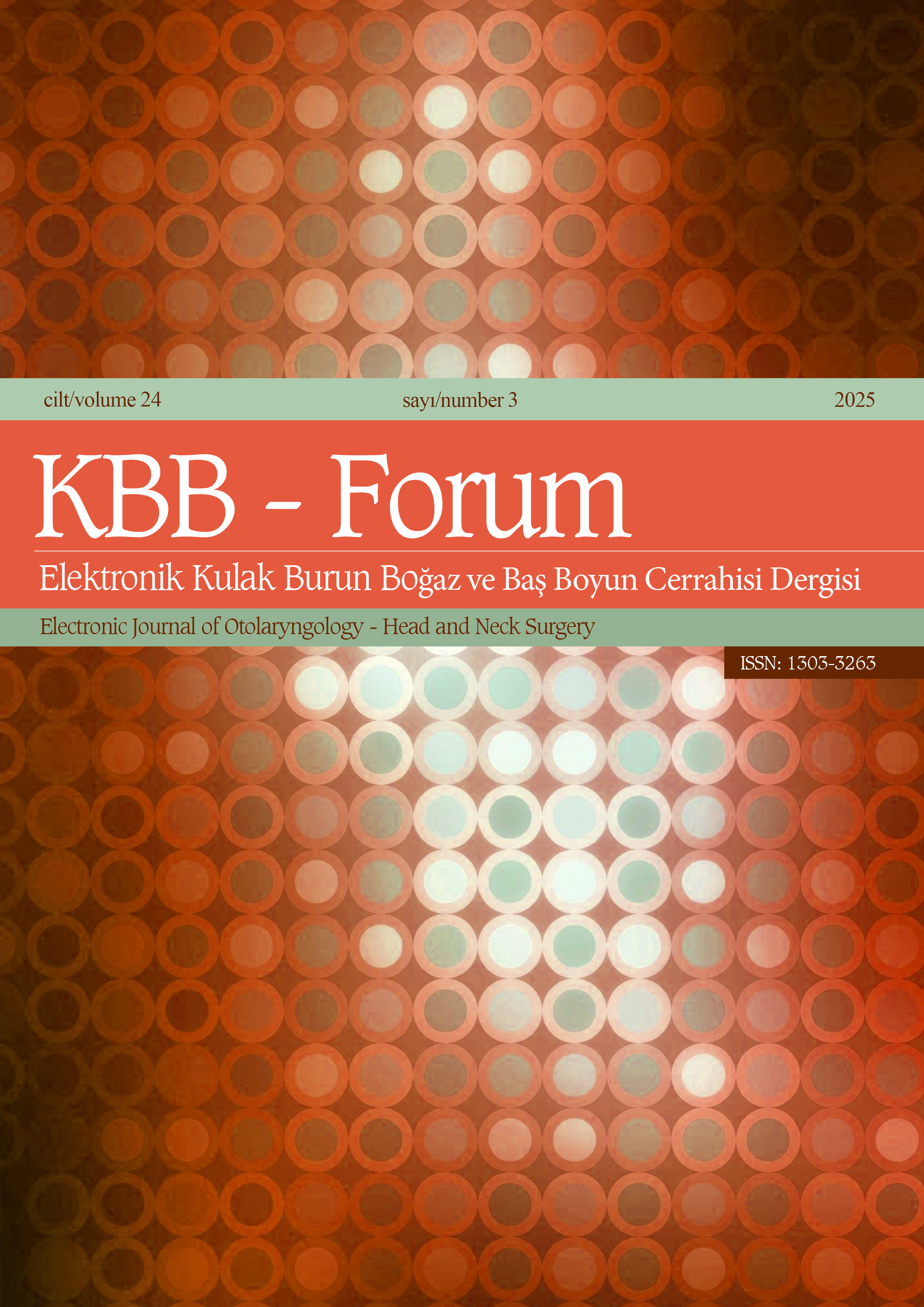INVESTIGATION OF THE RELATIONSHIP BETWEEN LIFE SATISFACTION AND DISABILITY AND AUDITORY HANDICAP IN ADULTS WITH HEARING LOSS
1Ankara Yıldırım Beyazıt Üniversitesi, Odyoloji, Ankara, Türkiye2Ankara Yıldırım Beyazıt Üniversitesi, Sosyal Hizmet, Ankara, Türkiye Objective: This study aims to understand the barriers faced by adults with hearing loss in their social lives based on the severity of their auditory impairment, to identify functional limitations, and to determine the impact of auditory disability on their quality of life.
Methods: Adults aged between 18 and 60 years with hearing loss were included in the study. Participants completed the Satisfaction with Life Scale (SWLS), the World Health Organization Disability Assessment Schedule 2.0 (WHODAS 2.0), and the Amsterdam Inventory for Auditory Disability and Handicap (AIADH).
Results: No significant relationship was found between SWLS scores and the subscales of the AIADH (rs = 0.09-0.22). A significant correlation was observed between the WHODAS 2.0 communication subscale and all AIADH subscales (rs = 0.45-0.60), as well as between the WHODAS 2.0 mobility subscale and the AIADH subscales for sound detection, sound discrimination, and speech intelligibility in noise (rs = 0.30-0.36). No significant correlation was found between the AIADH subscales and the WHODAS 2.0 subscales for getting along with people, life activities, and participation in society. There was no significant difference in SWLS scores between hearing aid and cochlear implant users (Z = -1.29). However, significant differences were found between the two groups in the WHODAS 2.0 subscales for life activities and communication (Z = -2.477; Z = -2.448).
Conclusion: Hearing loss in adults leads to disability particularly in the areas of communication and mobility. Although hearing loss limits individuals' communication and environmental interaction abilities, it does not appear to have a direct effect on life satisfaction. When evaluating the effects of hearing loss, a multidimensional approach should be adopted, and rehabilitation strategies should include psychosocial and functional domains.
Keywords : Life Satisfaction, Functional Impairment, Hearing Loss, Auditory Disability, Disability



